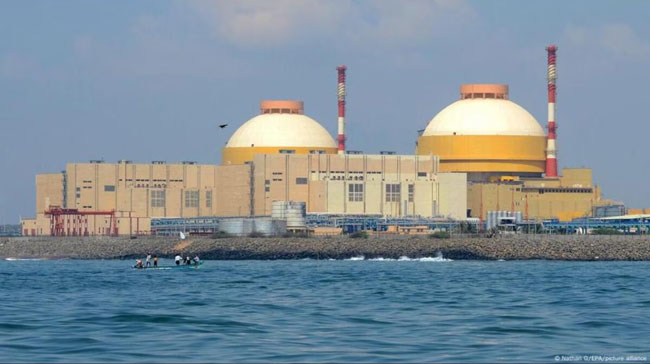India has pledged over $2 billion to boost nuclear energy research and development, with plans to amend laws to attract more investment in the sector. Finance Minister Nirmala Sitharaman announced this initiative earlier this month as part of the country’s strategy to increase power generation while reducing carbon emissions.
100 GW Nuclear Energy Target by 2047
India aims to generate 100 gigawatts (GW) of nuclear power by 2047, enough to supply electricity to around 60 million homes. This move is crucial for meeting the country’s rising energy demands and reducing dependence on fossil fuels. Currently, over 75% of India’s electricity comes from coal, which significantly contributes to environmental pollution.
Challenges and Public Skepticism
Despite the ambitious goals, experts remain skeptical about India’s nuclear energy expansion. The country’s nuclear sector is still relatively small, and public perception remains largely negative due to concerns over safety and radioactive waste disposal.
Potential US Cooperation and Investment
India’s nuclear policy could receive support from the US. Prime Minister Narendra Modi is expected to discuss nuclear energy cooperation with President Trump during his upcoming visit to the US. American nuclear companies are exploring investment opportunities in India, particularly in the development of smaller and more affordable nuclear reactors.
Cost and Local Opposition
Nuclear energy in India is nearly three times more expensive than solar power. While solar energy plants can be set up in less than a year, nuclear plants take approximately six years to become operational.
Local communities have protested against nuclear projects in the past, citing safety and environmental concerns. For instance, the Kudankulam nuclear plant in Tamil Nadu and the proposed nuclear facility in Maharashtra have faced strong opposition. Experts suggest that the government’s biggest challenge will be convincing the public to support these projects.
Global Surge in Nuclear Energy Interest
According to the International Energy Agency (IEA), 63 nuclear reactors are currently under construction worldwide, the highest number since the 1990s. Interest in nuclear power has surged, particularly in response to the global energy crisis.
While nuclear energy offers a reliable and clean alternative, environmentalists argue that India should also focus on expanding solar and renewable energy sources, which can be developed much faster and offer immediate solutions to reducing greenhouse gas emissions.
India’s decision to invest heavily in nuclear power is a significant step toward long-term energy security and emission reduction. However, addressing concerns about costs, public acceptance, and safety will be key challenges for the government in executing this plan.




